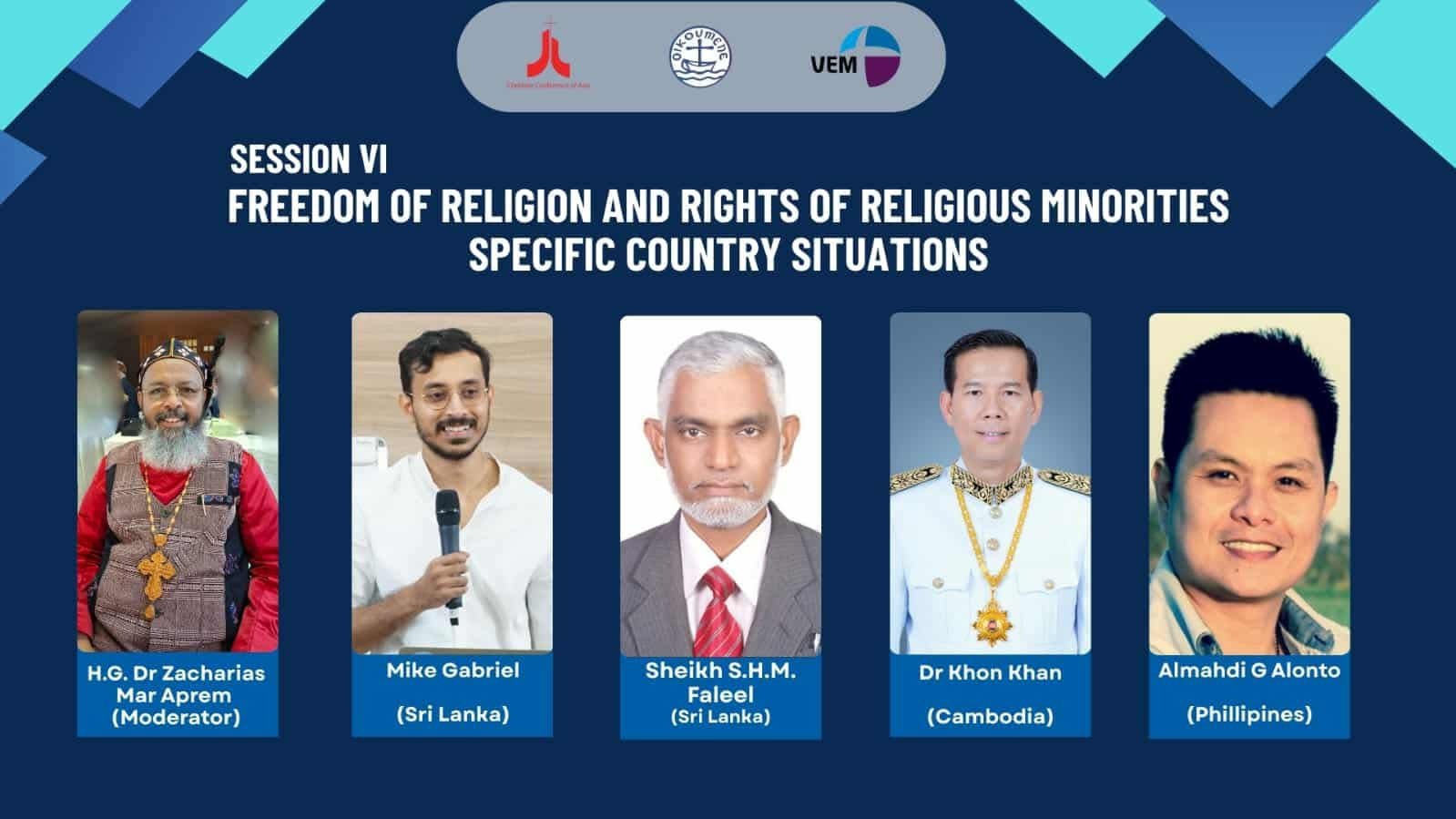Aliah Pacalna Cali-Pascan, DPA, JD
JAKARTA – From September 17-19, 2025, the Christian Conference of Asia (CCA), in partnership with Indonesian church organizations, hosted a pivotal interfaith conference in Jakarta focused on the gap between constitutional guarantees of religious freedom and the daily experiences of religious minorities throughout Asia. The event drew 50 participants from various countries, all committed to advancing religious freedom.
The conference aimed to bridge the gap between legal frameworks and lived realities. While many Asian nations have constitutions that protect religious freedom, participants highlighted how these rights are often not fully realized, leading to challenges for minority communities. A key objective was to move beyond theoretical discussions and develop practical, concrete action plans to enhance advocacy efforts from local communities to international bodies.
A notable contribution came from the Philippines, with the participation of Prof. Almahdi “Aldean” Alonto. A prominent figure in peacebuilding and interfaith dialogue, Prof. Alonto was invited to share his insights. Drawing from his work as the Peace Education Program Officer at the Institute for Peace and Development in Mindanao (IPDM), he presented a compelling case study on the Muslim-Filipino community. His presentation provided a vital perspective on the challenges and successes of interfaith relations within the Philippine context.
The three-day dialogue concluded with a shared commitment from all participants to implement the developed action plans. These strategies are designed to strengthen collaboration among different religious groups and amplify their collective voice in advocating for the rights of all religious minorities.



